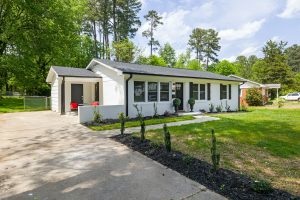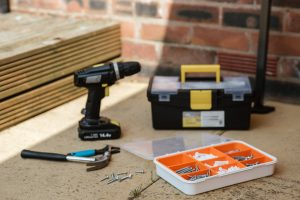There was a time when manufactured homes were less than desired, especially due to poor quality and safety standards. However, after 1976, the HUD Code for manufactured homes was established to guarantee the safety and quality of these homes. For this reason, many people started embracing manufactured homes.
Even though manufactured homes are cheaper, there is so much involved in purchasing one. For instance, proper research and a reliable budget are necessary to land the best deal.
So, what exactly should you consider or look for while purchasing a manufactured home? Keep reading to find out.
What to Look For when Buying a Manufactured Home
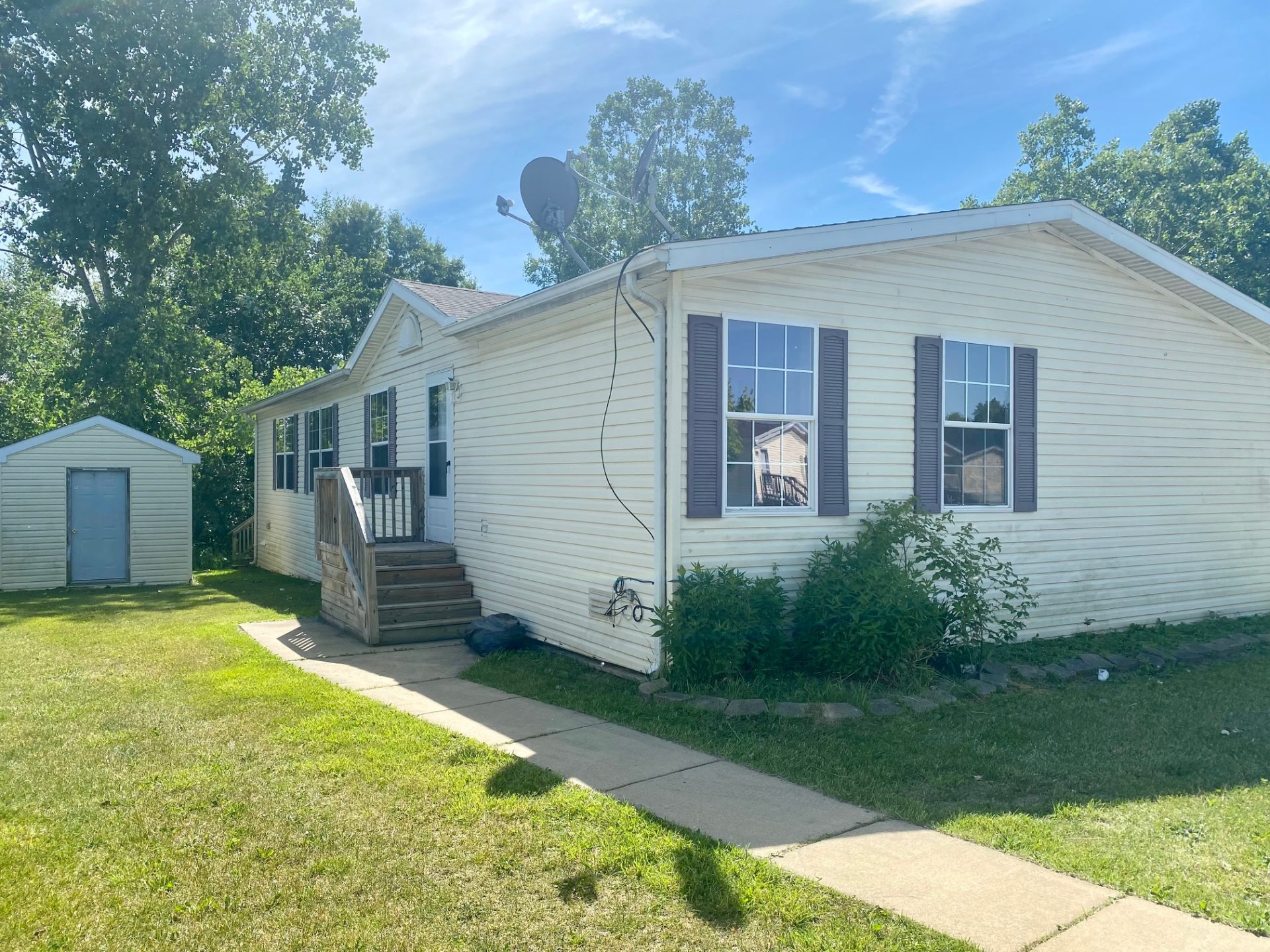
There are several things to look for when buying a manufactured home. However, before we look at them, do you know what manufactured housing is?
These are prefabricated or factory–built homes that are transported and temporarily or permanently fixed to a certain piece of land. They are an upgrade to traditional mobile homes, and their design conforms to the HUD Code for quality and safety purposes.
Manufactured homes nowadays have features similar to site-built homes (see mobile home vs. stick-built). It is a common thing to find desired items, like energy-efficient appliances and walk-in closets, in manufactured homes, along with top-quality shared amenities in manufactured home communities. See our top 10 manufactured home communities in Michigan here.
How to Buy a Manufactured Home
The manufactured home financing and purchase process is different from buying a site-built home. Lenders consider these homes personal property, not real property, especially when placed on a temporary foundation. For your information, getting a loan is easier with a real property than with personal property.
Manufactured home financing loans work more like car loans and not like traditional mortgage loans. This means that you will need a higher down payment and better credit score to get approved for the loans.
With that said, the situation changes when mobile homes are placed on a permanent foundation. In such a case, a buyer can get a VA, FHA, or other government backed loan.
Now let’s move on to what you should look for when buying a manufactured home:
The Condition of Both Used and New Manufactured Homes
As we mentioned already, today’s manufactured homes have greatly improved in terms of structure, design, and energy-efficiency features. This is because they are designed and developed under the strict HUD Code from the Department of Housing and Urban Development.
Therefore, as long as you are buying a manufactured home that was built after 1976, ensure a good structural design and condition.Learn more about how mobile homes are built here.
Below are things to look out for as far as manufactured home condition is concerned:
Foundation
This is critical, especially when buying a mobile home already in a manufactured home community (learn how to buy a mobile home already in a community here). Look for tilting or sinking piers that could be pulling away from the mobile home structure.
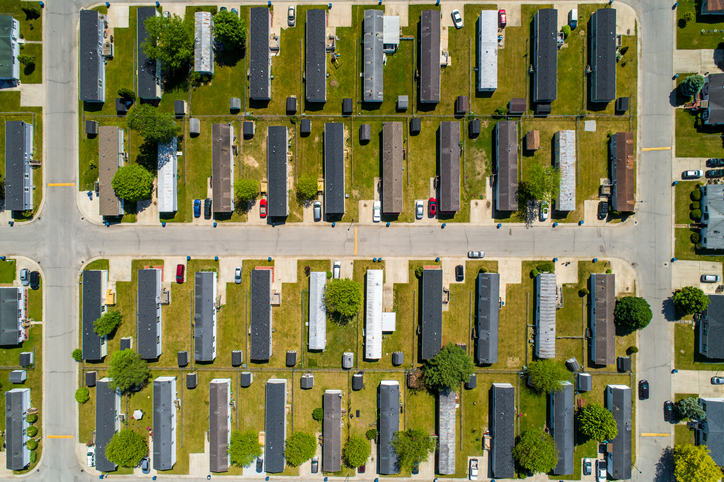
At times, tie-down straps could be loose. If this is the case, avoid purchasing such a manufactured home, no matter the price.
Windows and Doors
Ensure that the manufactured home doors and windows are aligned well within the home, which will enable you to close and open them with ease. If they are not, there may be a foundation issue.
Roof
If you neglect the roofing of a manufactured home, you might experience leaks, especially after heavy rains or melting snow. Whether you want to purchase a used or new manufactured home, ensure the roof is well designed and leak-free. Find out how long a roof lasts on a mobile home here.
Plumbing
When installing a manufactured home, you will only have to connect it to the main plumbing system in the manufactured home park. Therefore, ensure that there is proper piping in the home and that all of the connections are tight. You need to be careful here, especially with old mobile homes, since they are likely to have old pipes with the potential for bursting.
Electrical Wiring
Just like with plumbing, manufactured homes come fully wired; you just need to connect them to the main power supply. You must ensure the wiring is properly done before purchasing the mobile home.
If possible, have a professional electrician inspect the home. For the case of a used mobile home, try connecting light bulbs to see if they function properly.
Insulation
Make sure your mobile home has sufficient insulation and that it was installed properly. Improper insulation can cause damage to the walls, electrical system, plumbing, and roof. Learn how to add insulation to a mobile home here.
Dryer Vents and Washer Drains
Check that the dryer vent and washer drain are clear and functioning properly. For your information, they are found under the mobile home.
Skirting
You should inspect the skirting on your potential manufactured home. This is a section that helps the home to remain dry and protects the plumbing, too.
Ensure that the skirting does not have gaps or holes for proper venting. The aim here is to prevent rot and mold.
To check the condition of the skirting for your mobile home properly, you may need the help of a professional. Although this might cost you some money, it will be worth it in the long run.
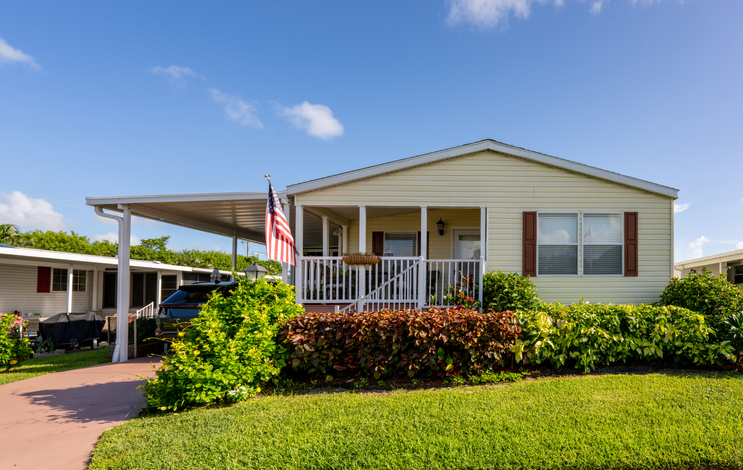
Manufactured Home Design
Before buying a manufactured home, you should consider whether the manufactured home development and design meets your expectations. Several questions remain unanswered here.
For instance, how are you planning to use your manufactured home? How many bedrooms do you need?
Below are things to consider, as far as the mobile home design is concerned:
Manufactured Home Size
Manufactured homes are usually smaller compared to traditional homes. Therefore, any time you want to buy a manufactured home in a park, consider the number of rooms and room sizes.
Luckily, home sellers and factory dealers present generous floor plans, especially for double–wide and single–wide mobile homes. For instance, It is common to get a double–wide mobile home with over 2,000 square feet and four bedrooms.
Be sure that you are buying a mobile home that is spacious enough for your family.
Available and Required Rooms
Here, you need to consider your needs. For instance, would you like to have a storage room or home office in your home? If yes, then you should probably be looking at double-wide manufactured homes.
Your needs for room sizes, especially the living room, depends on your family size. You will need a larger living room if you have a large family. Families with more than five people should consider layouts with two living rooms.
If you love spending more time in the kitchen, you probably should be looking for a spacious kitchen. Also, we recommend going for a more open floor plan that seamlessly flows into the living room.
The best way to determine the perfect number of rooms and their sizes is to evaluate your current living situation. If the rooms are enough, just go for a manufactured home with the same room number and size.
Flooring
Most manufactured homes are designed with unique flooring options, such as laminate, tiles, carpet, or linoleum. We recommend going for durable flooring options, like tiles.
Interior Design
The design of your manufactured home’s interior space will determine the peace you get inside the home. Additions, such as a fireplace and kitchen cabinets (best if they are made by Kitchen Cabinet Kings), will improve the room’s feel and enhance its look. Also, remember that going for a gas fireplace will mean easy installation and maintenance.
Exterior Options
Manufactured homes are designed with various siding options. We recommend high-quality siding thanks to being highly durable and having a high color retention capability.
This is also the time to determine your perfect wind zone rating. Choose a higher rating if you reside in areas with high winds.
Mobile Home Wind Zone Ratings
Mobile homes are designed for different wind zones. When buying a home, ensure that it is compatible with your area’s wind speed and strength.
Let’s go through the wind zone ratings for mobile homes:
● Wind Zone !
● Wind Zone II
● Wind Zone III
Wind Zone I
If you come from a wind zone I area, then the mobile home you buy should be built with a wind zone I rating. For your information, wind zone I covers the largest part of the United States, especially the interior parts where hurricanes rarely occur.
Buying a wind zone I rated mobile home means you will not not need to worry about wind speeds of 70 miles per hour and below.
After buying a wind zone I rated manufactured home, never move it to a higher wind zone area, because it will then be susceptible to damage.
Wind Zone II
Buy a wind zone II rated mobile home if you live in wind zone II areas. This zone is mainly notable in states like Florida. Going for a wind zone II rated home means that your home can withstand wind speeds up to 100 miles per hour.
All wind zone II rated manufactured homes should be restricted to zone II areas in order to avoid the risk of damage.
Wind Zone III
This wind zone is for all manufactured homes in wind zone III areas. Such manufactured homes can withstand a high wind speed of up to 110 miles per hour.
If you come from coastal regions, such as Hawaii, where hurricanes are common, you have no other option but to buy a wind zone III rated home. Having a wind zone I or II rated mobile home in this zone can translate into immediate damage.
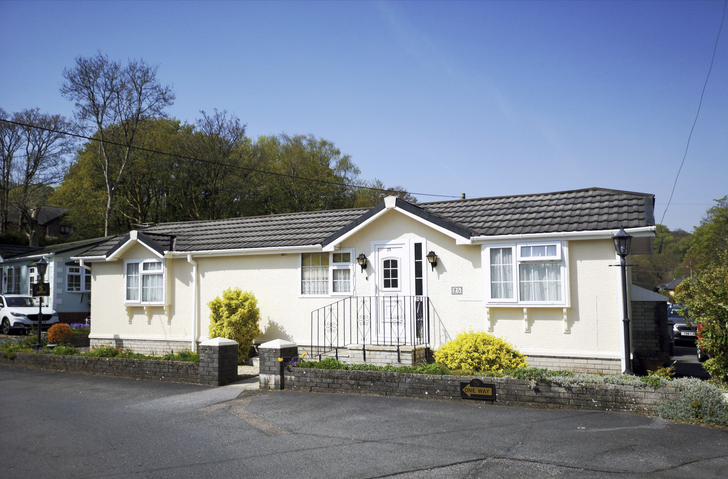
Reliability and Reputation of the Mobile Home Dealer
You can only get a top-quality mobile home from a reliable dealer (see the top five double-wide mobile home dealers in Michigan). We recommend looking for the online ratings and reviews of the manufactured home dealers. From this, you can determine the dealer’s reputation and how well they serve their manufactured home buyers.
The best dealers consider the customer’s needs and financial capabilities to offer them manufactured and modular homes that meet their expectations. In most cases, customers also receive a warranty on the mobile home they purchase from the respective dealer.
One reliable and reputable manufactured home dealer we recommend is Tyrone Woods Manufactured Home Community.
Apart from having a wide selection of manufactured and modular homes, Tyrone Woods offer a beautiful community to reside at.
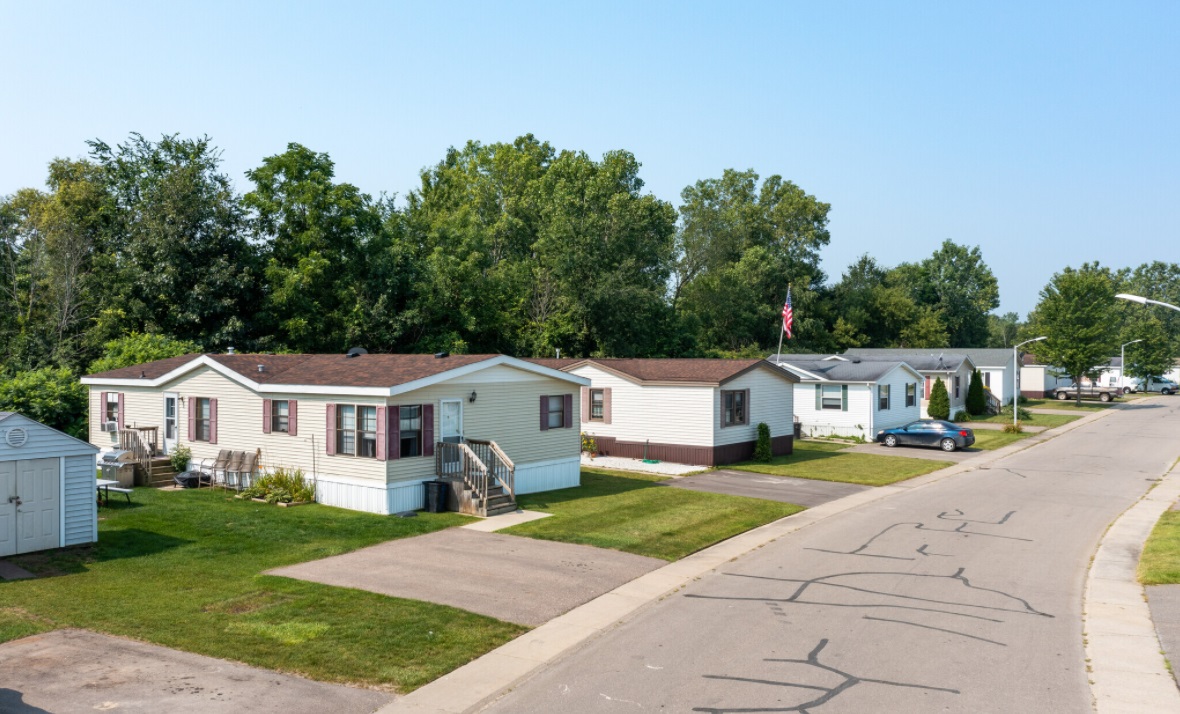
For your information, Tyrone Woods Manufactured Home Community has been in the manufactured housing industry for over 20 years and focuses on customer satisfaction over everything else.
Available Mobile Home Loans
Although manufactured homes are cheaper than stick-built homes, buying them might not be as easy as you may think. Therefore, knowing your options and picking the right avenue to obtain the best manufactured home loans would be ideal.
Since different lenders offer different amounts, fees, and interest rates, you need to research the available options to land the best deal.
Let’s go through the loans available for manufactured homes:
Federal Housing Administration Loans (FHA)
These loans are for those exceeding the United States Department of Agriculture’s income limit. Before you take this manufactured home loan, evaluate the available FHA-approved lenders and, if possible, negotiate the lending terms.
FHA loans are available as follows:
● Title I Loans
● Title II Loans
Title I loans are available for any personal property. The land your manufactured housing unit sits on does not have to be your own land, meaning that it could be leased-land (see land-lease community).
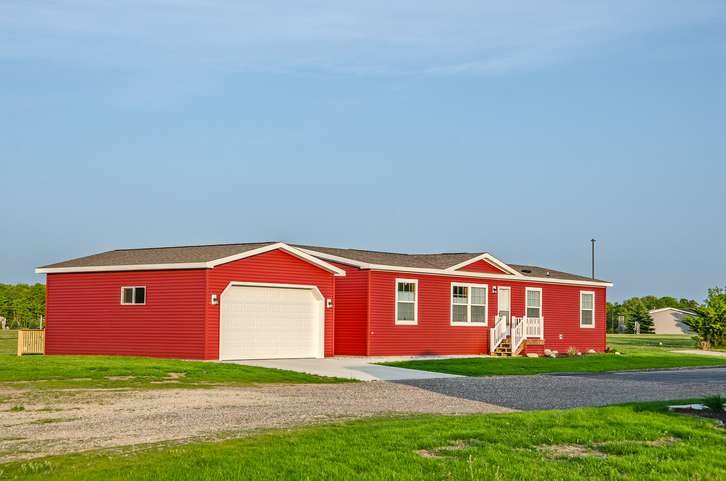
The only drawback for Title I is that it offers shorter repayment terms. The maximum amount you can get on this loan is $92,904. However, you will only get this amount if you bought the mobile home together with your own land.
The down payment is 5% which is higher than that for Title II loans. Unlike Title II loans, though, Title I loans are assumable. This means that if you decide on selling the home, the new buyer assumes full responsibility for payments.
Title II loans, on the other hand, cover real property, thus the need to buy both manufactured homes and the land it sits on. You should also have your home on a permanent foundation if you want to qualify for Title II loans. You will also need a down payment of 3.5%.
Only take Title II loans if you plan on making your manufactured home your primary residence. Additionally, you should be ready for loan terms of up to 30 years.
Chattel Loans
Chattel loans for manufactured homes cover any personal property that is set up on land not owned by the loan borrower. Apart from a manufactured home, you can take a chattel loan to cover farm equipment or even a car.
One drawback to taking a chattel loan is that it is smaller than a traditional mortgage. You will also experience higher monthly payments thanks to shorter repayment periods of 15-20 years. Generally, the interest rates for these loans are higher than standard loans, at least 1.5% higher per year.
Veterans Affairs Loans (VA)
If you are a service member or U.S. veteran, you qualify for veterans affairs loans. However, your mobile home must be fixed on a permanent foundation. Additionally, the land the home is fixed on should be owned by the borrower.
Personal Loans
Since a manufactured home is available cheaper than a traditional home, homeowners can secure financing with personal loans. Many people have expressed their love for personal loans thanks to their flexibility. The only drawback is that they come with high-interest rates.
Available Amenities for Used Mobile Homes in a Mobile Home Community
When purchasing a used manufactured home, there is a high chance it is already in a manufactured home park. In this case, you need to consider the available amenities in the park and see whether they meet your expectations.
Let’s review the critical amenities to consider:
Available Recreational Facilities
If you want to buy a manufactured home in a park, consider the available recreational facilities. Such amenities will enable you to keep in touch with your neighbors and build good friendships.
Some of the common facilities you will find include sport courts, swimming pools, clubhouses, and playgrounds. We also recommend mobile home parks that organize common events to improve social engagements.
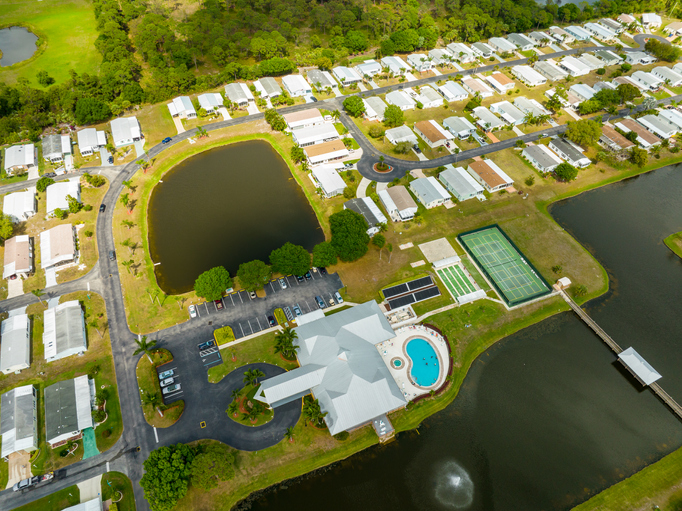
Pet-Friendly Living
Many manufactured home communities restrict the types of pets you can have. Those that allow pets will most likely charge you a certain fee for keeping them. Only consider manufactured homes for sale in communities that allow pets and have enough space for pet exercise. Also, be sure to review the mobile home community pet policy.
The Available Important Infrastructure within the Manufactured Home Community
Inspect the mobile home to determine whether services, such as gas, water, and electricity, are available without delay. You might sometimes be responsible for paying fees for such amenities.
You should also consider essential infrastructure, such as roads. The available amenities should be able to give you a peace of mind.
Security Outside and Inside the Home
You should prioritize your personal security when buying a mobile home in a mobile home community. Ensure the community has a low crime rate. It is even better if it has extra security features, such as CCTV cameras, security guards, and/or is gated.
The Final Verdict
We all agree that the manufactured home industry has grown in popularity thanks to offering low maintenance and energy-efficient manufactured homes. The homes are also built off-site under strict building and quality standards. However, you must look for certain things to get the best manufactured home deal.
As mentioned, you should consider the mobile home condition and design, reliability of the manufactured home builders, wind zone ratings, available financing options, the average sales price, and amenities in the relevant manufactured home community. This will enable you to land a top-quality mobile home at an affordable cost.
Ensure you do not compromise high-quality and expensive homes for cheaper and low-quality ones. Since not all manufactured homes are considered personal properties, investing in a quality one is a worthy real estate investment.



